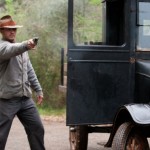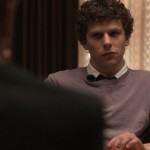Gosford Park Review
It takes great skill to make a film like Gosford Park. Besides the obvious technical work needed to create the world of this film, director Robert Altman also must work hard to manage a group of nearly 25 important characters. And each actor needs to know his or her place in the picture. Even the biggest names on the marquee—Helen Mirren and Clive Owen—must resist the urge to stand out since their characters are meant to be in the background. Such exceptional craftsmanship makes for a film that’s easy to admire but difficult to love. Altman’s only slip is the emotional distance between the characters and the viewers, at least for most of the picture. Still, on the strength of acting, directing, and technical work, Gosford Park earns a strong recommendation.
In the English countryside in the 1930s, a group of aristocrats gather for a weekend of sport and socializing. Sir William (Michael Gambon) is the man of the Gosford Park estate. His wife is Lady Sylvia (Kristen Scott Thomas). The other noblemen and women who attend the party either harbor a secret or have a penchant for juicy gossip, which makes the weekend much livelier than many anticipated. And, unbeknownst to the lords and ladies, it’s a very lively weekend for their servants downstairs. Led by the stern head of household Mrs. Wilson (Helen Mirren), the servants work tirelessly to make sure their masters enjoy the weekend, but they aren’t without their secrets as well. Robert Parks (Clive Owen) is new to service. Henry Denton (Ryan Phillippe) always seems to be lurking around suspiciously. And Elsie (Emily Watson) is having an affair with Sir William himself. While the weekend is certainly busy, it’s also quite tranquil—at least for a while. But rather suddenly, a dead body turns up, and almost everyone in the house is a suspect.
Going into a lengthy explanation of the characters and their relationships would be exhausting for both you and me, so I’ll let you solve that puzzle for yourself. The drawback of having so many characters on hand is that we don’t get the chance to get to know each of them as intimately as we might in a more sparsely populated film. Of course, it’s fascinating to see the connections come together and to see the way the servants and their masters relate. But I’d be lying if I said there isn’t something by spending nearly an hour just introducing the characters.
That being said, I don’t think there’s anything more these actors or this director could have done to fix this problem. The performances are nearly perfect, and Altman gives us enough time with them all to make us feel invested in the story. Altman, of course, is accustomed to large ensembles like this. His resume is littered with some of the most beloved ensemble pieces in film history—M*A*S*H, Nashville, and Short Cuts, among others. Gosford Park might not be as highly regarded as those films, but it’s as well-made as anything the late director worked on.
It’s hard for any actor to really stand out in an ensemble this big, but no actor gives a weak performance. The best of the bunch is probably Maggie Smith, simply because her role (as a crotchety aristocrat) is the film’s juiciest, while Helen Mirren—also excellent—is a portrait of quiet strength as Mrs. Wilson. The two actresses were singled out for Academy Award nominations, and I’ve got to say I have no qualms about either. Michael Gambon is a scoundrel as Sir William, while Kristen Scott Thomas is deliciously cold as Lady Sylvia. The only weak link in the cast is Ryan Phillippe. His character is just very odd, and the actor feels incredibly out of place.
Gosford Park reminded me a lot of Sidney Lumet’s classic Murder on the Orient Express. That film was nearly perfect in the way it balanced its large cast. This one isn’t quite as successful, but that’s probably just because it’s more ambitious, with an ensemble nearly twice the size of Lumet’s. Emotionally, the film is muted, but that’s a misstep worth forgiving when a film has such fantastic writing, direction, and acting.
















